Speakers’ Abstracts and Biographies
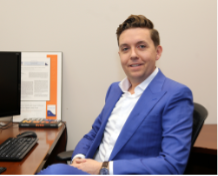
Andrew White
CEO, CHAR Technologies Ltd.
Country: Canada
Title: “Renewable Gases & Biocarbon from Biomass & Residuals with High Temperature Pyrolysis – A Co-Product Model.”
Abstract: High Temperature Pyrolysis (HTP) process converts low value, residual biomass and wastes into co-products of biocarbon and renewable gases. Depending on the feedstock, the resultant biocarbon can either be used to offset fossil coal in heavy industrial applications such as steel making or (White continued) can be used as part of a PyCCS (Pyrolysis Carbon Capture & Sequestration) process. Likewise, the gases generated can either be optimized to generate a green hydrogen product, or can be processed and upgraded into renewable natural gas. During the presentation, the technology, as well as the various product output opportunities, will be explored in greater detail.
Biography: Andrew is the co-founder of CHAR Technologies. He has a MASc degree in Chemical Engineering from the University of Toronto and after a eureka moment in the lab, launched CHAR Technologies. He also has a Master’s Degree in Business, Entrepreneurship and Technology (MBET) from the University of Waterloo and has won the IBK Capital Ivey Business Plan Competition, been named the OBBA’s Young Entrepreneur of the Year, and led CHAR to be named the CIX Top 20 Most Innovative Public Companies. Andrew leads by example – providing clients and staff alike with clear guidance and actionable insights that help make our world a better place
Email: Andrew.white@chartechnologies.com
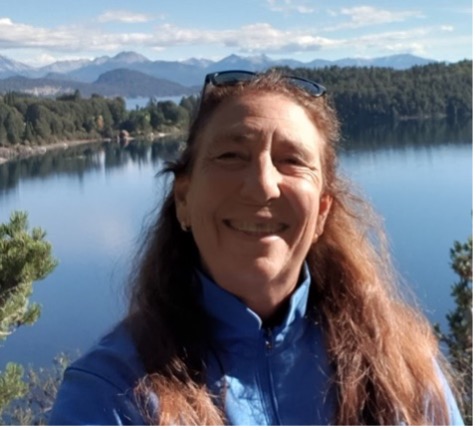
Adriana María Descalzo, Ph.D.
Senior Researcher at CONICET (National Scientific and Technical Research Council of Argentina). Coordinator of the National Program of Added Value, Agroindustry and Bioenergy. National Institute of Agricultural Technology (INTA)
Country: Argentina
Title: “Use Lactic Fermentation as a Tool to Transform Cereal Biomass into Functional Foods.”
Abstract: The modern bio-economy consists of biotechnology, green chemistry, clean food processing, and modern biofuels, and can learn from the experience of the “traditional” processes such as fermentation to alcoholic drinks, foods, and medicine. Lactic acid fermentation is a traditional tool to preserve food from pathogen microorganism growth. Lactic acids bacteria (LAB) are used mainly at the dairy industry and some of these strains exert probiotic and post biotic activities. Combined with yeasts and molds, they intervene in the formation of flavors and aroma compounds during cheese maturation. For that reason, lactic acid fermentation continue to be a highly desirable method of processing and preserving foods because they are of low cost, have low energy requirements for both processing and preparing foods for consumption, and yield highly acceptable and diversified flavors. Lactic acid fermentations have other distinct advantages in that the foods become resistant to microbial spoilage and toxin development. Acid fermentations also modify the flavor of the original ingredients and often improve nutritive value.
(Descalzo continued) Many African and American traditional recipes, involve the use of fermented maize and sorghum. In the present work, we propose to add nutritional value to these products through the incorporation of functional compounds as phytosterols and antioxidant vitamins, and to use both, one extensive field crop as maize, as well as quinoa from small producers from La Rioja in the Northwest of the country.
Using maize as a base for a fermented yogurt type food, allowed driving fermentation, with L. plantarum and L casei growth of more than two logs in the cereal matrix, until reaching 108UFC/g product. This concentration is required for probiotic action. The addition of natural concentrated juice of papaya and melon gave stable concentrations of carotenoids (more than 30 mg/kg product) tocopherols (around 5 mg/kg product). Other added functional compounds such as phytosterols were stable at concentrations of 2 mg per portion, reported as anticholesterolemic. Results extrapolated to quinoa, successfully fermented with natural traditional kefir as starter, showed 109 UFC/g product of LAB Using these starters may also allow to transform cereal grains and residues into valuable products. Therefore, we present an alternative to use cereals and ancestral crops to add value as functional plant-based foods using low energy, clean technologies.
Biography: Adriana M. Descalzo is a biologist, specialized in food technology and nutrition. She works at the National Institute of Agricultural Technology (INTA) and coordinates the Program of Added Value, Agroindustry and Bioenergy. She has a PhD degree at the University of Buenos Aires (Biology) and a post-doctoral study at the University of Freiburg, Germany (molecular virology). She also made short stays at the University of Georgia (food stability) and University of California, Davis (food genomics), worked at the Institute of Food Technology at INTA for 22 years with an expatriation at the UMR-Qualisud, CIRAD, France (food quality and technology). Professor at the University of Buenos Aires and University of Morón, with the direction and co-direction of 18 post-graduation thesis and 5 research staff. Presently, the coordination of key actions in agroindustry ow to generate impact between the academic and the productive system in the territory.
Email: descalzo.adriana@inta.gob.ar – Orcid: https://orcid.org/my-orcid?orcid=0000-0002-3261-5865
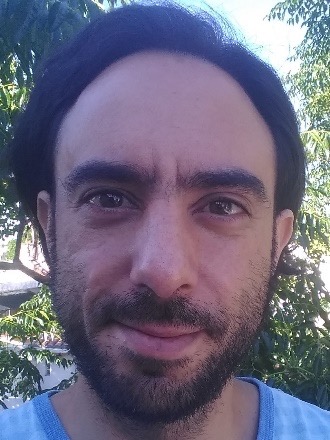
Demián Olemberg, Ph.D.
Researcher at INTA (National Agricultural Technology Institute). Professor at Buenos Aires University.
Country: Argentina
Title: “Economic analysis of Eucalyptus cultivation for energy from biomass in Argentina”
Abstract: Renewable energy production is currently a technical necessity and a political goal itself. Northeastern Argentina is an area of great potential for the cultivation of fast-growing species for energy use. However, an economic analysis is required to assess its viability. We propose an ex-ante evaluation of the viability of Eucalyptus grandis wood energy plantations modelling the effects of changes in the economic context key prices. The model we built enables the estimation of the minimum viable price for forest biomass production, sensitivity analysis, and an approach to understanding the evolution of the economic viability conditions to anticipate future scenarios.
Biography: Demián Olemberg holds a Bachelor in Economics (Universidad de Buenos Aires) and a PhD in Sociales Agrarian Studies (Universidad Nacional de Córdoba). He is a researcher at the Economics and Prospective Studies Research Center, National Agricultural Technology Institute (INTA), and is also lecturer of Economics at the Buenos Aires University. His current work areas include Forest Economics, Economic Evaluation and Sustainable Rural Development. He works within projects hosted by INTA and in consultancy for external institutions. He takes part in scientific meetings in his specialty and counts with academic as well as dissemination published works.
Email: olemberg.demian@inta.gob.ar
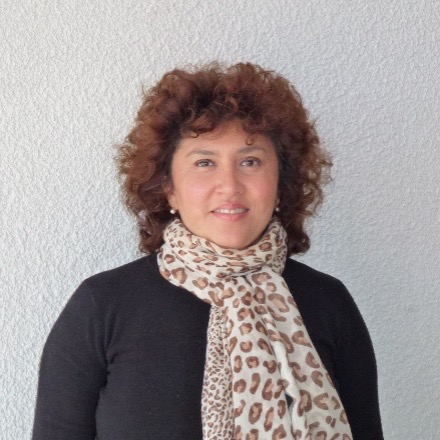
Roxana Paez, Ph.D., Food Science and Technology
Senior Researcher at Institute for Research in the Milk Chain (IDICAL), National Institute of Agricultural Technology –National Council of Scientific and Technical Research (INTA -CONICET), Rafaela, Argentina. Technical Director at INCUVA INTA EEA Rafaela, Santa Fe
Country: Argentina
Title: “Biotechnological valorization of whey for value-added products”
Abstract: In our country, 11 million liters of cheese whey are produced per day, of which only 45% is processed, being mainly the large companies that can industrialize it. The remaining 55% is generally given away free of charge to be used as animal feed, such as for fattening calves, or dumped into causing serious pollution problems.
At INTA, together with other scientific institutions, we have been working for more than ten years on the development of a technological platform based on the bioconversion of whey lactose and its derivatives such as permeate, to reach various bioproducts with high added value, including: yeasts, probiotic bacteria, bioplastics, enzymes, microalgae, etc. The products obtained as a result of this biotechnological platform could be used within the same value chain by applying a circular bioeconomy model. The processing and generation of products with higher added value from whey could drive new business models in start-ups and SMEs, with an effect on job creation and regional development.
Biography: Roxana Paez has a Ph.D. in Food Science and Technology, Researcher of Milk Quality and Agroindustries Group at the INTA’s Experimental Station in Rafaela. Specialist in milk quality and dairy products. Manager of INCUVA INTA Incubator of agroindustries technological based Companies. Project Manager of INTA and extra-INTA research projects. Professor of undergraduate and postgraduate courses related to the topic Milk and milk products quality in several universities in the country. Supervisor of CONICET and INTA grantees and Director of various theses. Author / co-author of scientific publications published in national and international indexed journals, book chapters, national and international congresses.
Email: paez.roxana@inta.gob.ar – website: www.inta.gob.ar/incuva
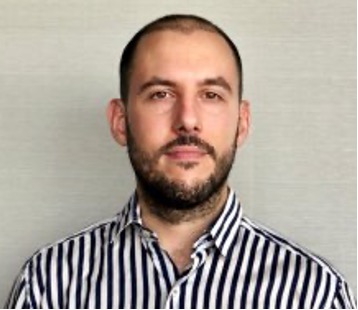
Joaquín Mario Ortiz, Ing. Agr. Mg.
Associate Researcher at INTA (National Institute of Agricultural Technologies). Agricultural Experimental Station Famaillá, Tucumán.
Country: Argentina
Title: “Adding Value to Sugarcane Crop Residue”
Abstract: Tucumán is the sugar and bioethanol from sugarcane largest producer in the country, with 270,000 hectares of sugar cane. The average yield is 60 t/ha, with 12-15 t/ha of crop residue after harvest (RAC).
INTA works studying potential uses for this residual biomass. From a modified integral sugarcane harvester, it is feasible to take and chop the Sugarcane Crop (DCA) in an attached hopper before reaching the ground.
The potential uses of this biomass were analyzed and the DCA and RAC were compared as input to produce 2nd Generation bioethanol, fuel for boilers, biogas production and for animal feeding (in evaluation process).
Biography: Joaquín Mario Ortiz is an agricultural engineer, graduated from the National University of Tucumán, with a master’s degree in Energy and Environment ITBA (Technological Institute of Buenos Aires)-KIT (Karlsruhe Institute of Technology).
He has been working at INTA since 2015. He currently is a researcher in Bioenergies in the RRNN group at the Agricultural Experimental Station Famaillá. There he works on biomass value addition projects, renewables energies, circular economy, and climate smart projects.
He did postgraduate courses in Japan (University of Hiroshima), India (Hyderabad, EPTRI) and a stay in Mexico, at the National Polytechnic Institute, during his undergraduate studies. He also took UN diplomas in climate change.
e-mail: ortiz.joaquin@inta.gob.ar

María Mercedes Echarte, Ph.D.
Scientific Researcher at INTA (National Institute of Agriculture Technology) and CONICET (National Scientific and Technical Research Council of Argentina). Director of Biomass and Bioenergy Laboratory at IPADS Balcarce (Institute of Innovation for Agriculture and Sustainable Develpment).
Country: Argentina
Title: “Biogas Demonstration Unit for a sustainable rural energy development in the Humid Pampas, Argentina”
Abstract: Lack or unreliable access to energy is one central factor of rural marginalization along Latin America. Biomass based solid fuels (e.g. firewood and charcoal) are still the main sources of energy for heating and cooking in rural households, while the introduction of subsidy policies for consumption of Liquefied Petroleum Gas (LPG) has contributed to the expansion and consolidation of fossil fuel distribution infrastructures and consumption patterns. Decentralized renewable energy solutions offer promising options for tackling energy related development constrains of rural population. Among them, biogas solutions —systems for the production and use of biogas and digestate— are often praised for their multi-functionality since they contribute to increased availability of renewable energy while addressing other challenges such as improving waste handling and increasing nutrient recycling. Moreover, biogas systems open the opportunity for a deeper involvement of citizens in the transformation and management of their energy systems, creating new jobs and skills among the energy users. However, evidence on how rural energy interventions effectively trigger positive developmental dynamics beyond the energy access dimension is still scarce. The socio-cultural, institutional and economic conditions of the context as well as of the configuration of the intervention itself play a key role, and many energy development interventions fail or fall short to successfully translate into significant development impacts for involved communities. In Argentina the long and broadly-spread practices of cooperativism offer promising alternative for tackling those crucial issues.
In order to link knowledge production on the one side and societal transformation on the other we built a Biogas Demonstration Unit in a small rural town (Los Pinos) of Buenos Aires Province. Applying a transdisciplinary and transformative research design we explore to which extent and how the developmental potential of biogas systems can be unleashed by integrating such technical option into the concept and practices of cooperativism.
Biography: María Mercedes Echarte is a Biochemist working in biomass and bioenergy field. Graduated in Buenos Aires University (UBA), she obtained her PhD in Biophysics in the Biological Chemistry and Physical-chemistry Institute (IQUIFIB, UBA). She made postdoctoral stays at the Center for Advanced Microscopies (Physics Department, UBA) and Plant Physiology Laboratory (Mar del Plata National University). She made short research stays at Max Planck Institute for Biophysical Chemistry (Goettinghen, Germany), Institute of Fat CSIC (Sevilla, Spain) and INRA (Toulouse, France). She recently obtained her diploma in “Strategic design of technologies for a sustainable inclusive development” from Quilmes National University. She is currently a scientific researcher of INTA and CONICET and Professor of the Agronomy School of Mar del Plata National University. She is directing projects, PhD thesis and postdoctoral fellowships aimed at developing strategies for waste valorization through anaerobic digestion and technologies for upgrading and use of biogas and digestate.
Email: echarte.maria@inta.gob.ar

Deborah Penchoff, Ph.D.
Research Assistant Professor in the Department of Nuclear Engineering, and a Fellow of the Howard H. Baker Jr. Center for Public Policy at the University of Tennessee
Country: Argentina
Title: “Accelerating Solutions to Increase Supply of Rare Earth Elements for Clean Energy Applications”
Authors: Deborah A. Penchoff and Charles B. Sims
Abstract: Rare earth elements (REEs) are essential in critical materials needed for clean energy,computers, satellites, medical devices, cell phones, hybrid vehicles, batteries, lasers, steel production, and many other instruments used in every-day applications and defense. China has become the largest producer of REEs and maintains a strong monopoly in the global marketplace. Environmental regulations across most of the globe cause the REE separation process to be costlier than importing them from China where regulations are less restrictive. Currently, simply increasing mining activity to break this monopoly is not a feasible solution since all the mined material would have to be shipped to China for processing. To combat this
reliance on foreign sources, nations could diversify their supply of REEs and become less reliant on a single country. This presentation will
address promising paths to diversify supply of REEs, multidisciplinary solutions to optimize separations of REEs through the utilization of
high performance computing (HPC), and efforts in the ‘Carbon, Ore, Rare Earth and Critical Materials (CORE-CM) Project.
Biography: Dr. Deborah Penchoff is the Associate Director of the Innovative Computing Laboratory, a Research Assistant Professor in the Department of Nuclear Engineering, and a Fellow of the Howard H. Baker Jr. Center for Public Policy at the University of Tennessee. She is an expert at leading multidisciplinary research involving applications of High Performance Computing (HPC), data science, and artificial intelligence (AI) with focus on optimization of separations of rare earth elements (REEs) and actinides. She is an elected officer in the American Chemical Society Division of Nuclear Chemistry and Technology (ACS-NUCL), and a member of the American Nuclear Society (ANS), the Society for Industrial and Applied Mathematics (SIAM), and the Association for Computing Machinery (ACM). She chairs many initiatives focused on accelerating findings through HPC and AI applications and is the editor in chief of Rare Earth Elements and Actinides: Progress in Computational Science Applications. She has a PhD in Physical Chemistry with an Interdisciplinary Minor in Computational Sciences.
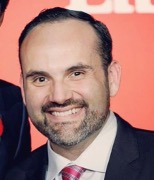
Ricardo Hamdan
Sales Manager Canada and Latin America. Hitachi Zosen Inova
Country: Canada
Title: “The role of Renewable Gas in the Circular Economy: Transforming Municipal Infrastructure into Profit Centers.”
Abstract: The need to reduce waste and emissions in urban communities is a central piece to the Circular Economy. As municipalities devise plans to achieve Net Zero, Renewable Gases provide a way to achieve waste and emission targets while providing extra profits to cities around the world. In this paper, we will explore the many ways we can transform cost centers (Landfills, Wastewater Treatment Facilities, Food Waste and SSO Facilities) into profit generating infrastructure. We will look at the different ways of using renewable gas: Electricity Generation, Pipeline Injection, Decarbonization of Public Transportation, and the role of public policy to make this a reality.
Biography: Ricardo Hamdan is the Sales Manager Canada and Latin America for Hitachi Zosen Inova, a supplier of a wide range of Renewable Natural Gas and Hydrogen technology solutions. He has over 15 years of experience in the RNG industry. His portfolio includes anaerobic digestion, gas upgrading, hydrogen electrolysis and CO2 methanation. Ricardo’s experience ranges from development of carbon credit projects across dairy farms in Latin America to providing technology solutions for signature private and municipal projects in the US and Canada particularly in California, Colorado, BC, Quebec and Ontario.
(Hamdan continued) Ricardo has previously served as a Board Director for the Canadian Biogas Association and as a volunteer advisor for MARS Innovation Centre in Toronto.
Email: Ricardo.hamdan@gmail.com

Jie Zhuang, Ph.D.
Professor, Biosystems Engineering and Soil Science, Director of FEWSUS, University of Tennessee, Knoxville
Country: United States of America
Title: “Can Food–Energy–Water Nexus Research Keep Pace with Agricultural Innovation?
Abstract: The nexus of food, energy, and water (FEW) systems represents complex system science. The nexus underlies the sustainable development of agriculture while confronting increasing complexity and challenges brought about by emerging technologies (such as sensors, artificial intelligence, and automated machines), supply chain disruption, and environmental change. Far less understood are the FEW outcomes for future generations if the emerging technologies are widely applied to agriculture. The outcomes will influence resource allocation and decision-making on future food production practices from local to regional to global scales. These impacts on FEW resources and policies become increasingly complex as environmental change and unpredictable economic, social, and political consequences emerge. Therefore, development of a system-of-systems roadmap by integrating disconnected information and perspectives is a prerequisite for exploring solutions that are effective to minimize the tradeoffs of emerging technologies. This presentation will address the increasing challenges and opportunities, identify knowledge gaps, and discuss the tradeoffs of emerging technologies if they are applied for food production.
Biography: Dr. Jie (Joe) Zhuang is a professor and graduate program director in Department of Biosystems Engineering and Soil Science and affiliated faculty in Center for Environmental Biotechnology and Institute for a Secure and Sustainable Environment at the University of Tennessee, Knoxville, USA. He received his bachelor, masters, and doctoral degrees in soil science from Shenyang Agricultural University, China. He is a co-founder and vice director of China-US Joint Research Center for Ecosystem and Environmental Change during 2007-2020. Dr. Zhuang created a US-China 100-PhD Program in the areas of Food, Energy and Environment in 2014 and has recruited more than 40 students for doctoral study in the U.S. With the support of the U.S. National Science Foundation, Dr. Zhuang currently leads a project aiming to develop a global research network for creating transdisciplinary nodes of food-energy-water to support sustainable urban systems (FEWSUS). This research project involves researchers, students, stakeholders, and policy-makers of many countries of the world. Over the past two decades, Dr. Zhuang has worked on a broad range of research projects in the United States, Japan, and China. His research focuses on food-energy-water nexus, fate and transport of contaminants (e.g., viruses, bacteria, colloids, emerging chemicals, radionuclides, and munitions constituents), physical foundation of soil viral ecology, soil carbon management, and soil hydrology modeling. He has served on the editorial boards for eight international journals, published more than 120 referred papers and book chapters, and given more than 40 invited talks worldwide.
Email: jzhuang@utk.edu
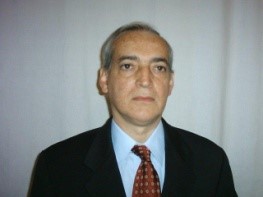
Miguel Almada, Coordinator of Bioenergy
National Coordinator, Secretariat of Agriculture, Livestock and Fisheries
Country: Argentina
Biography: Miguel Almada is an economist, currently Coordinator of Bioenergy at the Secretariat of Agriculture, Livestock and Fisheries of Argentina. He was previously in charge of the external department of the Investment Promotion Agency of Argentina, identifying business opportunities and promoting foreign direct investment into the country. He has also worked for the United Nations Industrial Development Organization as an Investment Promotion Officer, and at the World Bank as an advisor to the Executive Director for Argentina, Bolivia, Chile, Paraguay, Peru and Uruguay, both positions based in Washington, DC. In addition, he holds a graduate degree in Capital Markets and Global Finance from Georgetown University.